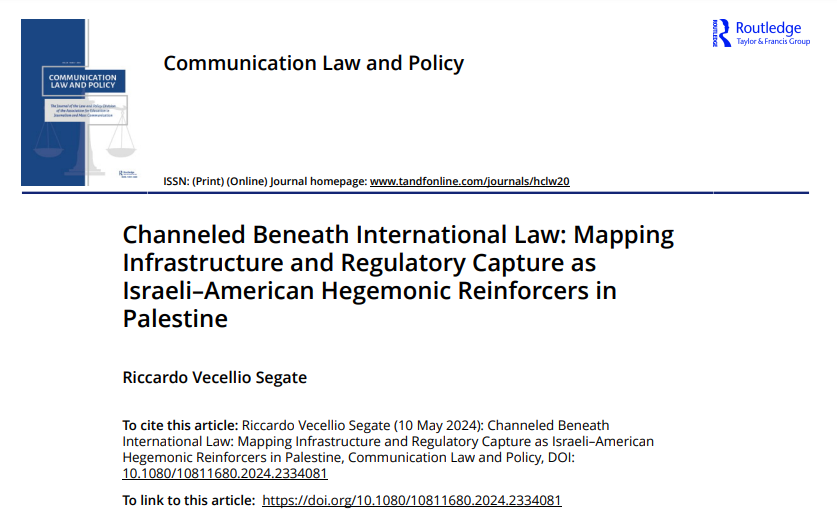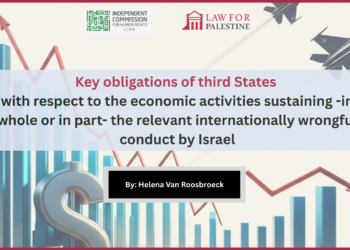New Research Explores US-Israeli Influence on Palestinian Digital Rights
Communication Law and Policy has published a new research article by Riccardo Vecellio Segate, titled “Channeled Beneath International Law: Mapping Infrastructure and Regulatory Capture as Israeli–American Hegemonic Reinforcers in Palestine,” now available on SSRN.
This study delves into the intricate dynamics of how the United States, alongside Israel, exerts significant control over Palestinian digital rights. The research highlights the cooperation between US intelligence agencies and Israel on “counterterrorism” measures that heavily impact Palestinians, particularly focusing on Internet policing in Gaza and the West Bank.
Key findings from the research include:
- US-Israeli Cooperation: The United States collaborates with Israel on many intelligence dossiers affecting Palestinians, including internet surveillance and censorship.
- Control of ISPs: Israel controls major Internet service providers (ISPs) serving Palestinian territories, enabling the enforcement of information filtering that aligns with American propaganda efforts.
- Surveillance Jurisdiction: The US asserts jurisdiction over data related to Palestine due to the American cables that dominate global Internet traffic, facilitating unmonitored surveillance.
- Censorship Practices: Numerous instances of censorship are directed by US government-linked corporations, particularly during times of conflict.
- Palestinian Authority’s Role: Palestinian authorities contribute to restricting digital rights through infrastructural limitations and executive orders under the guise of “public morals” or “security” concerns.
- Converging Interests: The combined technical and regulatory controls by Israel and Palestinian authorities align with US interests, reinforcing American security hegemony in the region.
Vecellio Segate’s research underscores the need to reassess the limitations of international law in regulating private actors and national jurisdictions over Internet infrastructure. It calls for greater scrutiny and realignment to protect Palestinians’ digital rights from undue influence and surveillance.
For more information, the full research article can be accessed on SSRN here.





